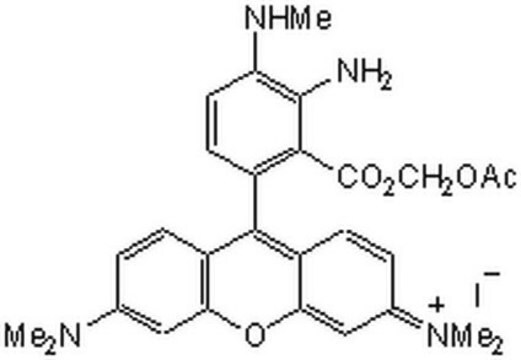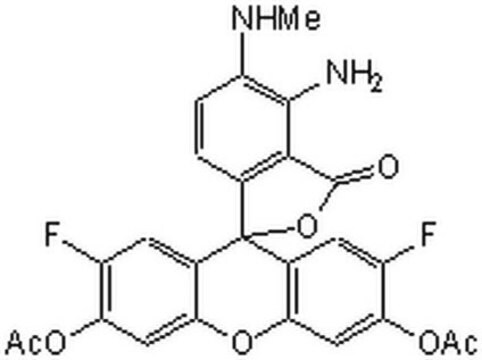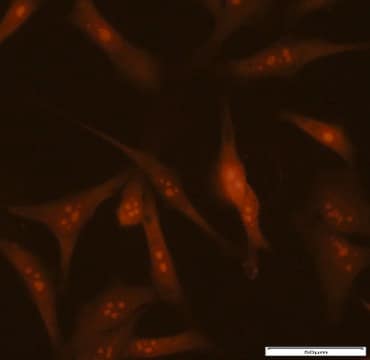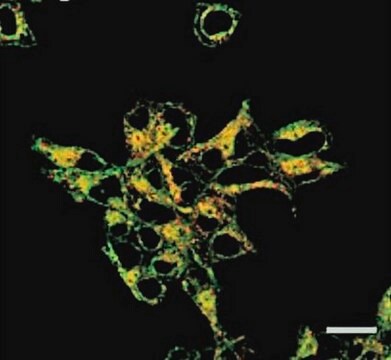SCT053
BioTracker SiRNO (Nitric Oxide)- Near Infrared Live Cell Dye
Live cell imaging dye for cellular nitric oxide (NO) localized to mitochondria and lysosome, used as an indicator of host defense, homeostasis and developmental functions.
Synonym(s):
Live cell imaging probe
About This Item
Recommended Products
Assay
≥98% (H-NMR)
≥98% (HPLC)
≥98% (LC/MS)
≥98% (elemental analysis)
technique(s)
cell based assay: suitable
detection method
fluorometric
General description
The BioTracker<TMSYMBOL></TMSYMBOL> SiRNO-Nitric oxide dye is a live cell near-infrared fluorescent imaging probe for detecting nitric oxide (NO). The probe targets NO specifically in the mitochondria and lysosome of living cells. The probe shows no cross reactivity to a variety of biomolecules and other reactive species including: ascorbic acid (AA), dehydroascorbic acid (DHA), methylglyoxal (MGO), GSH, Cys, Hcy, H2O2, ClO−, -OH, O2−, NO2−, and ONOO−. The SiRNO dye is pH insensitive in the range of 5.5 - 8.0, showing that it is suitable for physiological pH range. The SiRNO dye has been successfully used to detect NO in live cells, animal tissue and in vivo experiments.
Spectral Properties
Absorbance: 633nm
Emission: 650-750nm
Application
Cell Imaging
Live Cell Dye
Quality
Molar Mass: 758.34 g/mol
Physical form
Storage and Stability
Note: Centrifuge vial briefly to collect contents at bottom of vial before opening.
Disclaimer
Storage Class Code
11 - Combustible Solids
WGK
WGK 3
Flash Point(F)
Not applicable
Flash Point(C)
Not applicable
Regulatory Listings
Regulatory Listings are mainly provided for chemical products. Only limited information can be provided here for non-chemical products. No entry means none of the components are listed. It is the user’s obligation to ensure the safe and legal use of the product.
JAN Code
SCT053:
Certificates of Analysis (COA)
Search for Certificates of Analysis (COA) by entering the products Lot/Batch Number. Lot and Batch Numbers can be found on a product’s label following the words ‘Lot’ or ‘Batch’.
Already Own This Product?
Find documentation for the products that you have recently purchased in the Document Library.
Our team of scientists has experience in all areas of research including Life Science, Material Science, Chemical Synthesis, Chromatography, Analytical and many others.
Contact Technical Service







